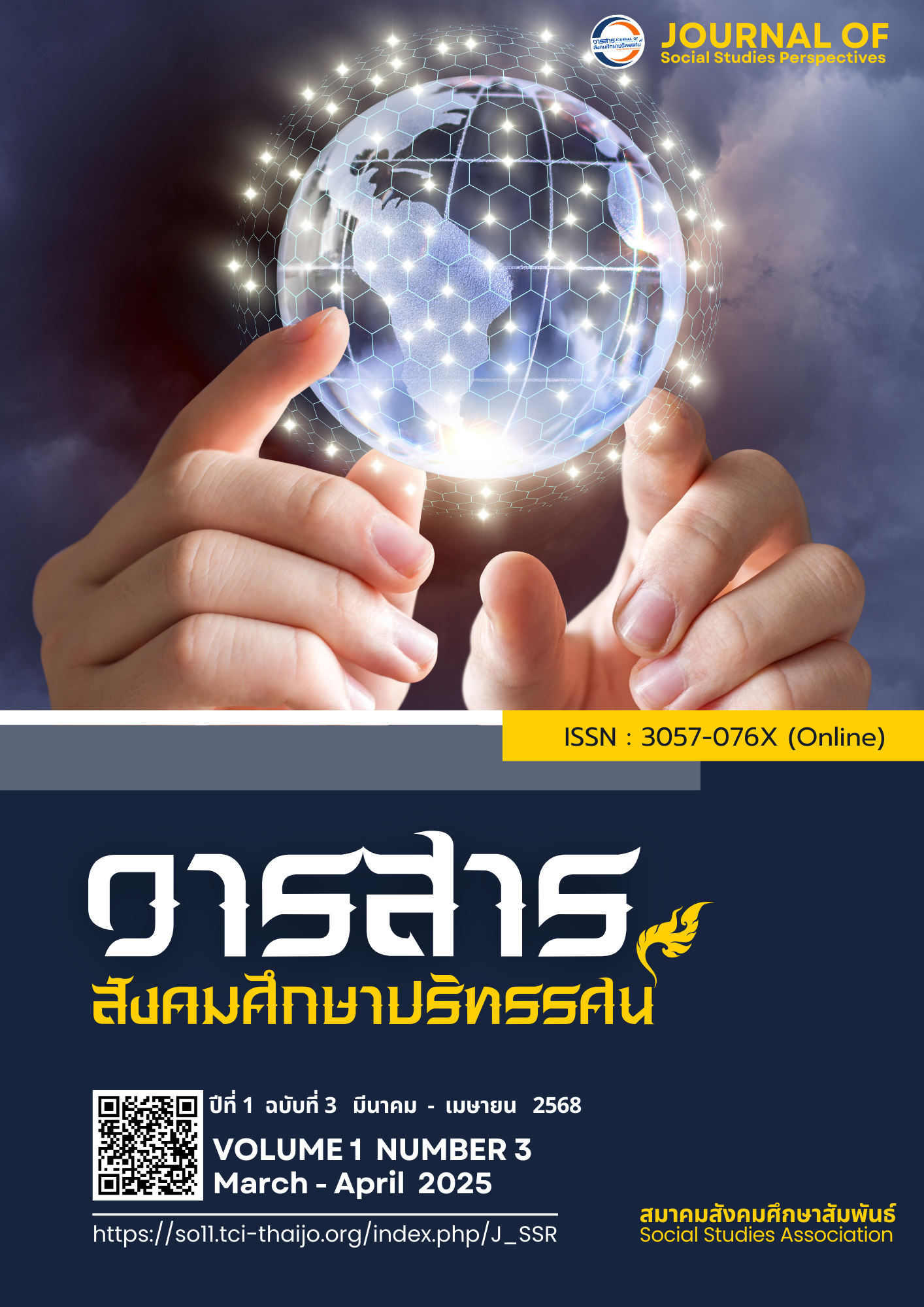A STUDY ON THE EFFECTIVENESS OF THE IMPLEMENTATION OF THE TEENAGE PREGNANCY PREVENTION AND SOLUTIONS ACT B.E. 2559 (2016)
DOI:
https://doi.org/10.64186/jsp1629Keywords:
Teenage pregnancy , Teenage pregnancy prevention and solutions act b.e. 2559 , The effectiveness of law enforcement , SatisfactionAbstract
This research aims to 1) study the effectiveness of the enforcement of the Act on Prevention and Resolution of Teenage Pregnancy B.E. 2559 (2016) and 2) study the satisfaction of teenagers and youths towards the results of the measures under the Act. The research is quantitative research. The sample consists of 100 officers from law enforcement agencies and 100 adolescents and youths. The purposive selection method was used. The research instrument is an online questionnaire : 1) officers from government agencies involved in the enforcement of the Act, and 2) satisfaction of teenagers and youths towards the benefits received from the Act. The data were analyzed using descriptive statistics, percentages, means, and standard deviations. The results of the study found that the mechanism with the two most agreed levels are that ministerial regulations can be a guideline for responsible agencies to more clearly prevent and resolve teenage pregnancy problems (X̅= 4.30), and executive mechanisms that give importance to operations by law (X̅= 4.29). Regarding rights protection measures, are helping teenagers get vocational training during pregnancy as well as providing a replacement family to care for the child (X̅= 4.29), and cooperation between local government agencies, educational institutions, service centers, and business establishment, private agency in referring them to receive help (X̅= 4.22). As for the satisfaction of teenagers and youths towards the results of the measures, are the most satisfied with the communication channels for reproductive health knowledge (X̅ = 4.30). They are most satisfied with the benefits they receive from communication channels for reproductive health knowledge (X̅ = 4.30), the mechanism of the local government organization that resides in helping teenagers to receive social welfare (X̅ = 4.28). This suggestion is increase budget support, support the creation of a network of children and youth to monitor teenage pregnancy problems.
References
Alavi-Arjas, F., Farnam, F., Granmayeh, M., & Haghani, H. (2018). The effect of sexual and
reproductive health education on knowledge and self-efficacy of school counselors.
Journal of Adolescent Health, 63(5), 615-620. Retrieved March 12, 2024, from
https://www.sciencedirect.com/science/article/abs/pii/S1054139X18302180
Ananpatiwet, S., Nungalee, S., & Phattarasatjatum, P. (2018). Unwanted teenage pregnancy:
Impact, trends, and help in a boundless global society. Journal of Nursing and
Education, 11(1), 16-31.
Bureau of Reproductive Health. (2017). National strategy for preventing and solving the
problem of teenage pregnancy 2017-2026 according to The Act on Prevention and
Solution to the Adolescent Pregnancy Problem B.E. 2559 (2nd printing). Bangkok:
Printing House, Thepphen Wanich.
Bureau of Reproductive Health. (2019). Research and evaluation of the project to drive
forward Teenage Pregnancy Prevention and Solutions Act B.E. 2559 (2016) in the year
Retrieved September 30, 2024, from
https://planning.anamai.moph.go.th/th/meeting01/download?did=7610&id=26199&lan
g=th&mid=29777&mkey=m_document&utm_source=chatgpt.com
Bureau of Reproductive Health. (2022). Teenage pregnancy prevention and solutions act B.E.
(2016). 2nd printing. Printing House, Kaew Chao Chom Media and Printing Center, Suan Sunandha Rajabhat University.
Department of Health. (2023). Reproductive health situation in adolescence and youth year
Retrieved September 2, 2024, from https://rh.anamai.moph.go.th/th/cms-of-1/download/?did=214353&id=115658&reload=
Natrujirote, W. (2017). Mobilizing process for teen pregnancy prevention. Journal of Social
Sciences, Srinakharinwirot University, 20. Retrieved October 2, from file:///C:/Users/PC/Downloads/9514-Article%20Text-25168-28115-10-20171215.pdf
Shaw, D. (2009). Access to sexual and reproductive health for young people: Bridging the
disconnect between rights and reality. International Journal of Gynecology &
Obstetrics, 106(2), 132-136. Retrieved March 3, 2024, from https://doi.org/10.1016/j.ijgo.2009.03.025
Suwanwanich, M. (2016). Teenage pregnancy and adverse birth outcomes at Ratchaburi
Hospital. Medical Journal, 35(3), 150-157. Retrieved October 2, from https://he02.tci-
thaijo.org/index.php/reg45/article/view/124965/94745
Tangdee, O., Sara, N., & Choosat, P. (2024). Evaluation of preventive implementation and
probing the teenage pregnancy problems of District Health Board: DHB. Retrieved
September 30, 2024, from https://rh.anamai.moph.go.th/th/academic-
portfolio/download/?did=1
UNICEF. (2021). Adolescent health and rights in Southeast Asia. Retrieved October 3, 2024,
from https://www.unicef.org/thailand/topics/adolescent-health-and-
development?items_=&page=1
Yajai, S., Suwannarat, W., Nongnueang, W., Pasuhirun, S., Jaidee, C., & Limcharoen, S. (2020).
Mobilization of the Act for Prevention and Solution of the Adolescent Pregnancy
Problem, B.E. 2559 (2016) through local collaborations in Chanthaburi Province. Regional
Health Promotion Center 9 Journal, 14(33), 35-51.
Downloads
Published
How to Cite
License
Copyright (c) 2025 Journal of social studies perspectives

This work is licensed under a Creative Commons Attribution-NonCommercial-NoDerivatives 4.0 International License.
The article is published under the Creative Commons Attribution-NonCommercial-NoDerivatives 4.0 International (CC BY-NC-ND 4.0) license, which allows others to share the article while giving appropriate credit to the author. It prohibits the use of the article for commercial purposes or the creation of derivative works. Any other reuse or reproduction requires permission from the journal.










